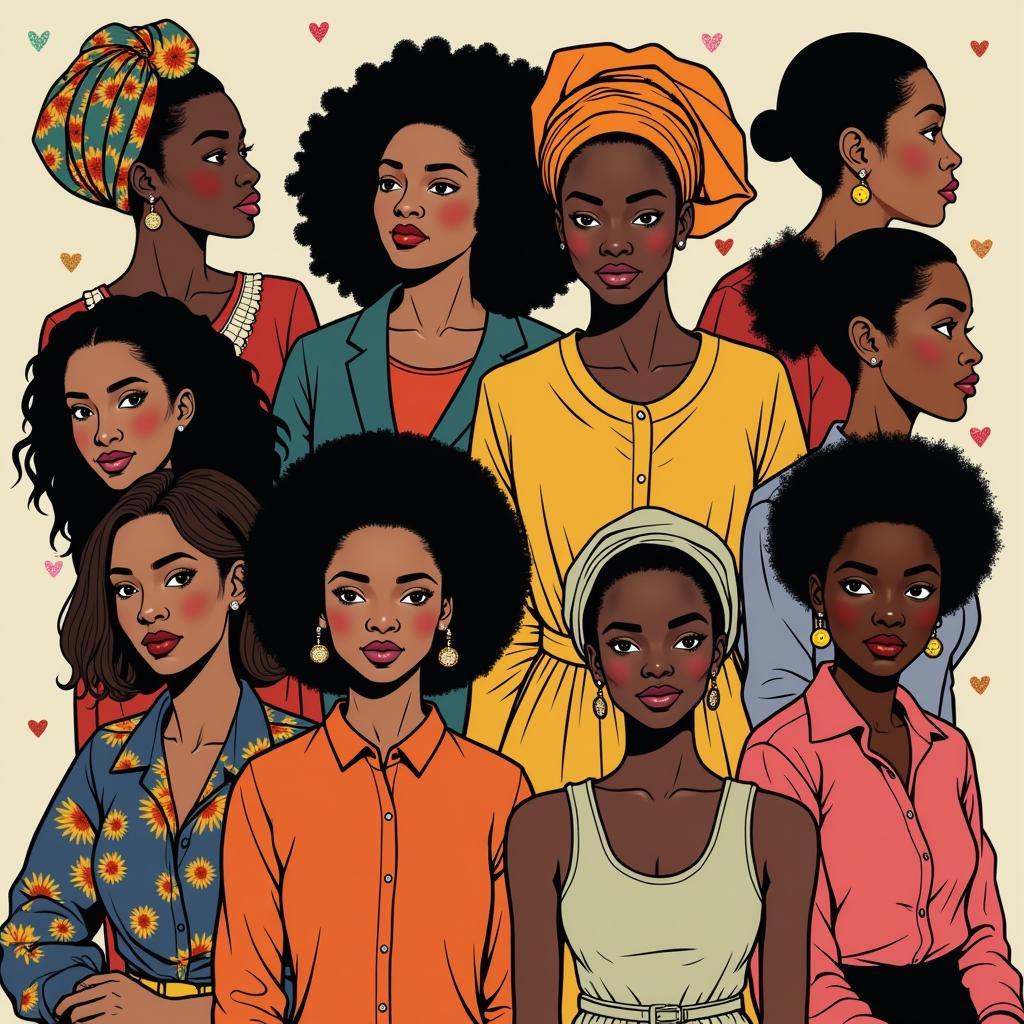The Enduring Beauty of African Coral
For centuries, the vibrant hues of African Coral have captivated hearts and adorned bodies, serving as a testament to the continent’s rich cultural tapestry. From the intricate beadwork of the Maasai to the elaborate coral crowns of Yoruba kings, this precious material transcends mere adornment, embodying deep spiritual significance and narrating tales of heritage and tradition.
A Treasure from the Depths: Understanding African Coral
Found in the warm, sun-kissed waters off the coast of Africa, coral is not a stone, but rather the skeletal remains of tiny marine animals called polyps. These polyps secrete calcium carbonate, which hardens over time, forming the intricate structures we know as coral reefs. While coral reefs around the world boast a dazzling array of colors, African coral is prized for its particularly intense shades of red, pink, and orange. This vibrancy stems from the presence of organic pigments within the coral itself.
More Than Just an Ornament: The Cultural Significance of African Coral
Across the African continent, coral holds profound cultural and spiritual significance, woven deeply into the fabric of daily life and ceremonial rituals.
A Symbol of Status and Power
In many African cultures, African coral is regarded as a symbol of status, wealth, and power. Among the Akan people of Ghana, for instance, coral beads are highly valued and often incorporated into elaborate jewelry worn by chiefs and dignitaries. The size and vibrancy of the coral beads serve as visual indicators of the wearer’s social standing and influence.
A Protector Against Evil
Beyond its aesthetic appeal, African coral is also believed to possess protective qualities. In some cultures, it is thought to ward off evil spirits, bringing good luck and fortune to its wearer. This belief is particularly prevalent in West Africa, where coral amulets and talismans are commonly worn for protection.
“Coral is more than just a beautiful material,” explains Abeni Cultural Heritage, “It is a powerful symbol of protection and spiritual connection, passed down through generations.”
A Bridge Between the Living and the Ancestors
For some African communities, African coral represents a connection to the ancestors and the spirit world. Its origins in the ocean are seen as a link between the physical and spiritual realms. In rituals and ceremonies, coral beads are often used as offerings to appease the ancestors and seek their guidance.
African Coral in Art and Adornment
The allure of African coral extends far beyond its spiritual significance. It has long been a source of inspiration for artists and craftspeople, who transform this raw material into exquisite works of art.
The Art of Beadwork
Across Africa, coral beads are meticulously strung together to create stunning necklaces, bracelets, earrings, and other adornments. These pieces often feature intricate patterns and designs that reflect the cultural heritage of the artisan. For example, the Maasai people of East Africa are renowned for their vibrant beadwork, which often incorporates African coral alongside other natural materials like bone, wood, and seeds.
Beyond Jewelry
African coral finds its way into other forms of art as well. Sculptors use it to create intricate figurines and masks, while some musical instruments incorporate coral elements for both aesthetic and acoustic purposes.
The Future of African Coral: A Call for Sustainability
As the demand for African coral continues to grow, it is crucial to address the issue of sustainability. Overfishing, destructive fishing practices, and climate change pose significant threats to coral reefs worldwide, including those in African waters.
Supporting sustainable sourcing practices and promoting responsible tourism are essential steps in preserving the beauty and cultural heritage associated with African coral for generations to come.
FAQs: Unveiling the Mysteries of African Coral
1. How can I tell if African coral is real?
Real African coral will have a slightly rough texture and may have natural imperfections. It is also relatively cool to the touch. Avoid pieces that are perfectly smooth or uniformly colored, as these may be imitations.
2. How do I care for my African coral jewelry?
To preserve the beauty of your African coral jewelry, store it in a cool, dry place away from direct sunlight. Avoid exposing it to harsh chemicals or extreme temperatures.
3. Is it ethical to buy African coral?
Yes, but it is vital to ensure your African coral comes from sustainable and ethical sources. Look for vendors who prioritize responsible sourcing practices and support coral reef conservation efforts.
Beyond the Surface: Exploring the Rich Tapestry of African Culture
African coral is just one thread in the vast and vibrant tapestry of African culture. From its ancient history to its diverse artistic traditions, Africa offers a wealth of stories waiting to be discovered. Explore further to uncover the hidden gems of this captivating continent:
- African arts and crafts history: Delve deeper into the rich artistic traditions of Africa and the significance of materials like coral in their creations.
- African cichlid breeding water parameters: Discover the fascinating world of African cichlids, vibrant freshwater fish that inhabit the same waters as coral reefs.
For inquiries, assistance, or to embark on your own African adventure, reach out to us:
Phone Number: +255768904061
Email: kaka.mag@gmail.com
Address: Mbarali DC Mawindi, Kangaga, Tanzania
Our dedicated team is available 24/7 to assist you.


